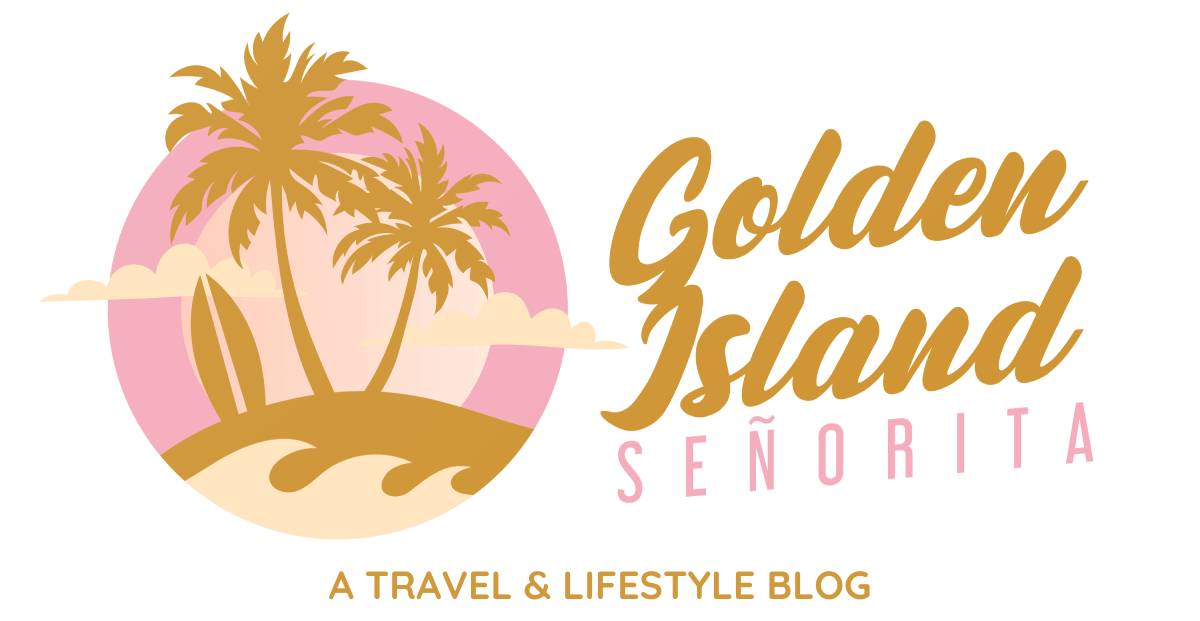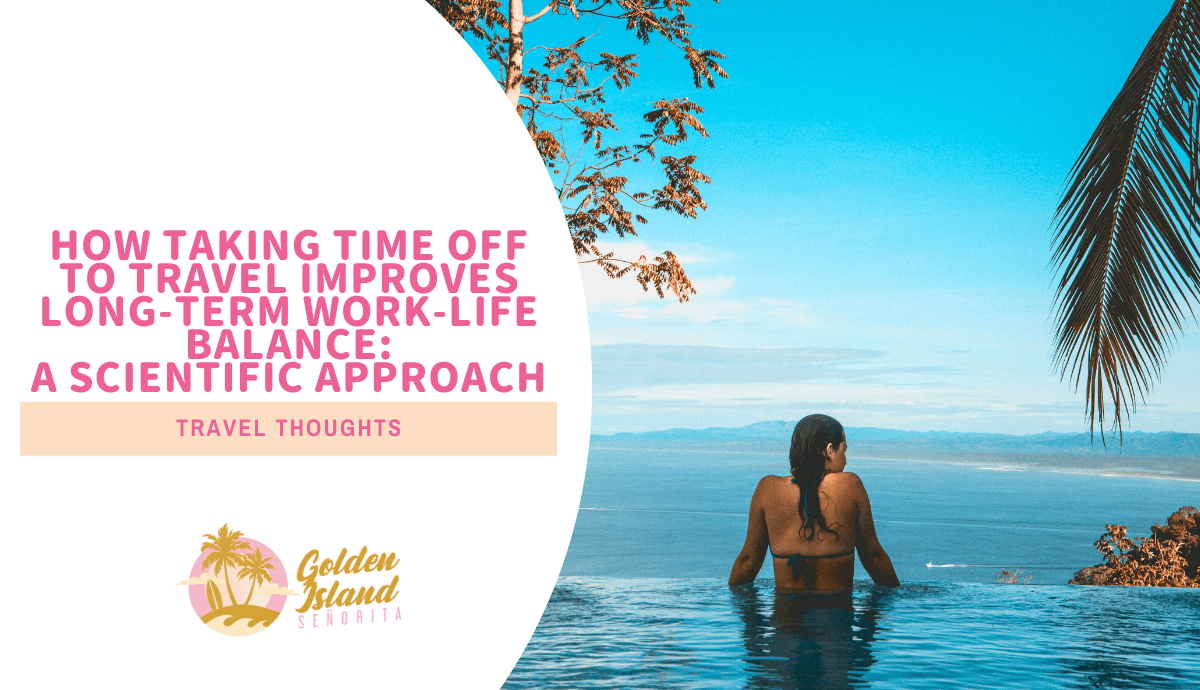In today’s fast-paced world, achieving work-life balance is something everyone seems to be striving for. Between career pressures, personal responsibilities, and trying to find time for yourself, it can often feel like an uphill battle.
Unfortunately, the Philippines ranks second to last in the Global Work-Life Balance Index, coming in at 59 out of 60.
One strategy that’s often overlooked when it comes to work-life balance is the power of taking time off to travel. In this article, we’ll dive into why travel is such a game-changer for long-term work-life balance, explore the science behind its benefits, and even break down how it affects our mental and physical health.
Let’s discover how travel can help you reset, recharge, and thrive!
Understanding Work-Life Balance
Work-life balance refers to the equilibrium between work-related responsibilities and personal activities. It’s about ensuring that neither aspect of your life overwhelms the other. Achieving this balance can reduce stress, increase productivity, and improve overall well-being. However, this balance is not static—it requires ongoing adjustment.
Unfortunately, with increasing work pressures, many people struggle to maintain a healthy balance. Stress, burnout, and chronic health conditions can be the result. That’s where taking time off, particularly for travel, can serve as a valuable tool to reset and restore balance.
How Travel Enhances Work-Life Balance
Travel offers a unique opportunity to step away from the daily grind and experience life from a fresh perspective. Whether you’re exploring a new city, lounging on a beach, or trekking through nature, travel allows you to disconnect, recharge, and refocus.
Here are a few reasons why taking time off to travel is essential for achieving long-term work-life balance:
Complete Disconnection From Work
One of the biggest challenges to work-life balance is the inability to disconnect from work. Many of us bring work home or constantly check emails, even during “off-hours.” However, when you travel—especially to a distant location—you’re more likely to disengage from work completely. This mental break is crucial for recovery.
Exposure to New Environments and Cultures
Travel immerses you in different cultures, environments, and lifestyles. This exposure expands your worldview, fostering creativity and problem-solving skills. Studies show that experiencing new cultures can lead to greater cognitive flexibility, which can ultimately improve how you approach challenges at work and in life .
Increased Happiness and Satisfaction
Travel is often associated with joy and excitement, emotions that can boost your mental well-being. A study from the University of Surrey found that people are happiest when they have a trip planned. Even the anticipation of a vacation can lead to an improved mood and reduced stress .
Better Personal Relationships
Traveling with loved ones or even solo can strengthen relationships. For families, travel creates lasting memories that strengthen bonds. For individuals, solo travel fosters self-awareness and personal growth. Either way, the experiences gained while traveling can enrich your personal life, contributing to a more fulfilling work-life balance.
Physical and Mental Health Benefits
A change in scenery often prompts physical activity, whether it’s walking through a city or hiking in the mountains. Physical activity boosts endorphins, improving mood and reducing stress levels. Moreover, travel encourages relaxation and rest, allowing your body and mind to recover from the physical toll of work.
The Science Behind Travel and Well-Being
Let’s break this down further by looking at the science behind how travel impacts our health. There are several mechanisms at play, both psychological and physiological, that make travel a crucial component of long-term work-life balance.
Psychological Benefits: The Brain’s Response to Travel
When we travel, our brains are exposed to a wide range of new stimuli. This activates areas of the brain associated with curiosity, learning, and problem-solving. A study published in Frontiers in Human Neuroscience highlights how new experiences lead to neuroplasticity—the brain’s ability to adapt and form new neural connections . These neural changes can lead to improved creativity and mental flexibility, essential traits for balancing work and life challenges.
Travel also stimulates the release of dopamine, the “feel-good” neurotransmitter that plays a key role in motivation, pleasure, and emotional regulation. Dopamine surges when we anticipate and experience rewarding activities, like traveling, which contributes to heightened feelings of joy and relaxation during a trip.
Pathophysiology: Stress Reduction and Immune Health
Chronic stress is one of the primary culprits behind burnout, anxiety, and poor work-life balance. When we’re stressed, our bodies release cortisol, a hormone that, in excess, can lead to a variety of negative health outcomes such as heart disease, high blood pressure, and weakened immune function. Frequent exposure to stress without proper recovery leads to a constant state of fight-or-flight, which takes a toll on both the mind and body.
Taking time off to travel offers a powerful antidote to stress. Studies have shown that vacations can lower cortisol levels and promote relaxation . Travel encourages relaxation by removing you from the stressors of daily life, giving your body a chance to recover and heal.
The Immune System Boost
Interestingly, travel can even boost your immune system. Research indicates that positive emotional experiences, like those often encountered during travel, can enhance immune function by reducing inflammatory responses in the body . This means that after a vacation, you may return to work not just refreshed mentally, but also physically more resilient.
Cognitive Health and Longevity
Taking time off to travel may also contribute to long-term cognitive health. According to a study published in the Journal of Alzheimer’s Disease, engaging in mentally stimulating activities, including travel, can help delay cognitive decline in older adults . By challenging your brain with new experiences, you help maintain its plasticity and functioning, which is crucial for preventing conditions like dementia.
In addition, a study conducted by the Global Commission on Aging found that men who take annual vacations are 32% less likely to die from heart disease than those who don’t, while women who take vacations regularly are 50% less likely to experience a heart attack . These findings underscore the importance of travel not just for mental health but for physical longevity as well.
Practical Ways to Incorporate Travel for Better Work-Life Balance
Now that we’ve explored the reasons why travel is essential for long-term work-life balance, how can you incorporate it into your life? Here are some practical tips:
Schedule Regular Vacations
Make it a priority to take at least one substantial vacation each year. Planning ahead will give you something to look forward to, which, as we discussed earlier, can boost your mood even before you leave. Whether it’s a two-week trip to a new country or a weekend getaway to a nearby destination, the key is to break free from your daily routine.
Mix Short Trips With Longer Breaks
You don’t have to wait for that annual vacation to experience the benefits of travel. Short trips, like weekend escapes or day trips, can also provide a much-needed mental reset. These mini-breaks can prevent burnout and keep you energized throughout the year.
Set Boundaries With Work During Vacations
Ensure that when you’re away, you’re truly away. Set clear boundaries with your workplace about being unreachable during your time off. Consider setting up an out-of-office reply for your emails and informing your team of your absence well in advance.
Practice Mindful Travel
To maximize the benefits of travel, try to be mindful during your trips. Whether you’re immersing yourself in a new culture or simply relaxing by the beach, focus on the present moment. This practice will help you get the most out of your experience and return home more rejuvenated.
Conclusion: Travel as a Pillar of Work-Life Balance
Travel is not just a luxury; it’s a necessity for maintaining long-term work-life balance. By stepping away from the demands of daily life, you give your mind and body the chance to recharge. The psychological benefits of new experiences, coupled with the physical advantages of reduced stress and enhanced immune function, make travel an indispensable tool for overall well-being.
From a scientific standpoint, taking time off to travel can improve cognitive function, lower stress hormones, and even contribute to a longer, healthier life. So, the next time you feel overwhelmed by work or personal responsibilities, remember that planning a trip could be just what you need to restore balance and return stronger.
Sources
Stress Reduction and Immune Health, Harvard Health Link
University of Surrey, Research on Vacation Happiness Link
Frontiers in Human Neuroscience, The Benefits of New Experiences on Neuroplasticity Link
Global Commission on Aging, Study on Travel and Longevity Link
Journal of Alzheimer’s Disease, Cognitive Stimulation Through Travel Link

